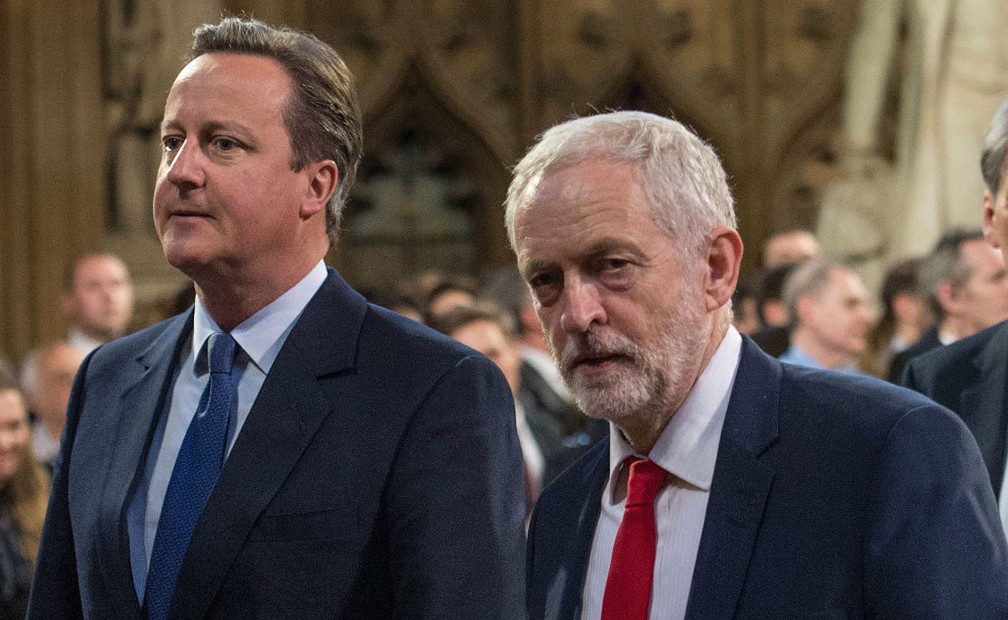

Britain is in the depths of its worst political chaos since World War II, and its Labour Party finds itself disjointed and embattled. Despite the constant barrage of resignations and attacks towards him, the left wing leader of the Labour Party, Jeremy Corbyn, is standing defiant. He refuses to stand down as leader and has insisted that he will run again for leadership in the party’s elections if there is a new leadership challenge invoked.
Although he lacks support from his fellow MPs, after an unprecedented vote of no confidence by 172 MPs to 40, Corbyn is aware that his support in the grassroots of the Labour membership remains strong. He expects to be re-elected if he stands again, but how can a leader lead his party into a period of great uncertainty without the support of his fellow parliamentarians?
Corbyn needs to hold the tainted Conservative government to account over its coming decisions, provide an alternative future for a post-EU Britain to the right-wing Brexit MPs, and rally support in areas where Labour support is vulnerable, but is all this possible when 80 per cent of his fellow Labour MPs are urging him to resign?
The growing possibility of a snap general election in November makes circumstances yet more intriguing and significant. The centrist wing of the Labour party, forged during the years of Tony Blair and, hence, informally referred to as ‘Blairites’, strongly believe that the three landslides Blair won in 1997, 2001 and 2005 make them the most likely faction to win the party an election. They never got on board with Corbyn’s leadership, and have been rebellious from the start, but even they never intended to get rid of Corbyn as soon as this.
The next planned election was in 2020, which gave the ‘Blairites’ five years to find and then install a suitable replacement, but the EU referendum has been an earthquake with no regard to custom or protocol in British politics, and instead of five years, the next election may be in five months. If there is to be a change in leader for them, it is now or never.
Perhaps this explains the timing of the revolt by the Labour MPs; they have been forced to act at a time when they are far from their strongest, but they still feel they have plenty of factors going in their favour if they wish to rid themselves of Corbyn’s leadership.
Read also: Our sterling ties
The Conservatives themselves are in disarray and in the process of electing a new leader too; there is huge rage across the country and within the Labour party at the result of the EU referendum, a campaign where Corbyn is accused of having lacked passion, and there are significant figures in the middling ‘soft left’ faction of the party wedged between the ‘Corbynites’ and the ‘Blairites’, ready to speak up against Corbyn.
The rebels also boast support of the widespread media, and have gained the support of the only mainstream Labour-supporting newspaper, the Mirror, during this revolt. Such are the number of previously unforeseeable advantages they now hold, this is not only the rebels’ best chance to depose Corbyn before the next election, this is their one and only chance.
However, Corbyn and his allies still hold the key trump card -- the support of the Labour party’s membership and most local parties across the country. Private polling conducted by Corbyn-backing Trade Unions reveals that he still boasts as much support as he did nine months ago when he came from a distant last place to win the Labour leadership by a landslide 60 per cent of all votes, more votes than the rest of the three more fancied candidates combined.
Corbyn insists he still has the democratic mandate to continue to lead the party and that he is reinforced by the party’s constitution, even after the vote of no confidence against him. In addition, the release of the heavily anticipated investigation into the Iraq War, Chilcot Report, a decade in the making, comes out next week on July 6, and it may well play into his hands as it seems likely to taint Tony Blair further, and by association, the faction of the party aligned with his centrist politics.
What must worry Corbyn is how the ‘soft left’ of the party, which was previously willing to give his leadership a chance, has completely abandoned him not because they disagreed with his left wing politics but because they doubted his leadership skills and his ability to unite the party.
A leadership election is now all but certain in the coming weeks and months. Whether Corbyn can withstand the overwhelming pressure amongst his own ranks, or be displaced by the momentum of the rebels remains to be seen, but the upcoming conflict is likely to take a massive, if not fatal, toll on both sides.
What is certain is that the Labour party has missed a golden opportunity to seize the country’s support in the wake of a chaotic Conservative party, a nation-splitting referendum campaign, and cries of progress and prosperity among the British people. Instead, a war has broken out amongst themselves and there are already calls from leading leftist commentators in the British media, such as Owen Jones, for the Labour party to be split into two separate parties. Regardless of the result of this conflict, the future of the Labour party looks calamitous and bleak. Perhaps only a pyrrhic victory lies ahead for the winner of this civil war.